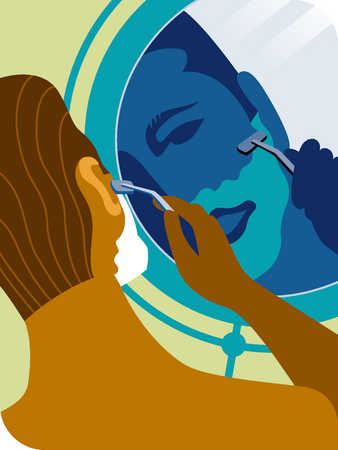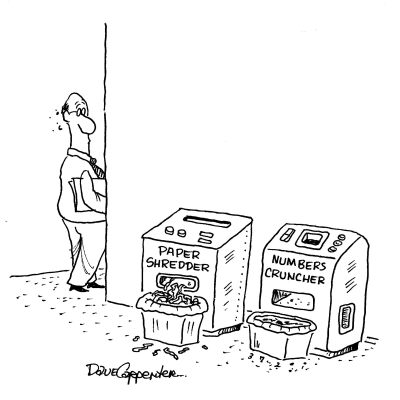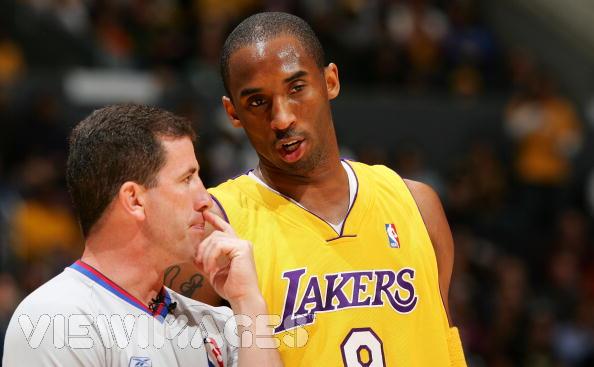College Basketball’s Unmentionable: the Issue of Point Shaving?
Posted by rtmsf on September 13th, 2010It’s not often that we stumble across academic research papers these days, but last week we happened upon one from the Department of Economics at Temple University in Philadelphia entitled, “Point Shaving in NCAA Basketball: Corrupt Behavior or Statistical Artifact?” In the paper, Professors George Diemer and Mike Leeds use various statistical analyses to conclude that not only does point shaving regularly occur in college basketball, but it occurs in two specifically defined situations. Their conclusion builds upon prior work by Professor Justin Wolfers at Penn’s Wharton School, who found a few years ago that approximately 1% of lined NCAA basketball games fell into an outlier suggestive of gambling-related corruption (the math works out to approximately thirty games per year).
Using data from a comprehensive sample of 35,000+ lined games from 1995-2009, Diemer and Leeds confirmed Wolfers’ underlying finding — statistical indicators suggest that point shaving in college basketball exists — while giving us a richer explanatory context of when it happens. So when does it happen? According to the authors, the data shows that the higher a point spread goes, there is greater statistical evidence of an increased incidence of point shaving. In other words, there is a greater likelihood of favorites shaving off a few points when they’re favored by twenty points than there is when they’re favored by fifteen, ten or five points. The intuitive logic behind this premise is that in games with large point spreads, the favorite (a far better team) can afford to give up a couple of meaningless buckets to its opponent at the end of the game because it will not impact the primary outcome — the favorite still gets the win, regardless of whether it wins by nineteen or fourteen points. Conversely, in games with increasingly smaller point spreads, players (or coaches, or referees) trying to shave points would have to walk a very fine line between trying to still win the game while simultaneously staying under the point spread threshold. Given the thousands of confounding factors facing any one person trying to manipulate a final score in such a way at the close of a game, this scenario would seem much more difficult to pull off.
The second qualifier that Diemer and Leeds found was that the statistical tendency for the incidence of point shaving to increase along with the betting line only holds during regular season games; during the postseason (conference tournaments, the NIT, and the NCAA Tournament), there is no such effect. The logical premise supporting this contention is similar to the above — in postseason games, there is a much greater level of importance from all parties involved (not to mention public attention) to perform at peak capacity from start to finish throughout the game. During the regular season, where presumably every team lives to play another day, this underlying motivator is less so.
You’re probably wondering how the authors can know something is fishy simply from looking at a bunch of excel spreadsheets of point spreads and game results over fifteen years. After all, it’s not like they can show specific instances of point shaving by anyone in particular (such as Toledo’s Sammy Villegas), nor can they isolate which individual games were the most likely candidates of corruption. They can only tell us that, given a normal expectation of how data aggregates in a gambling market, there are some trends that cannot simply be explained by random chance. Similar to determining that numerous Chicago public school teachers were helping their students cheat on standardized exams or any number of other economic studies to explain human behavior at the macro level, the answer is that this is what economists do.
Obviously, just because it’s their job doesn’t make it sacrosanct. Anticipating some criticism of the study, we asked Diemer and Leeds specifically about two possible issues with their findings. First is whether the concept of line shading — when bookmakers move their betting lines one way or another to maximize their own profits — impacts their findings. After all, if the assumption is that a gambling marketplace seeks to establish equal wagering from bettors on both sides of the point spread, then movement away from that magical 50/50 nexus could sway performance (i.e., the point spread doesn’t represent the true market odds). The authors refute this by suggesting that if bookmakers were manipulating the line in such a manner, then the data would still represent as a symmetrical distribution — but it doesn’t. No matter where the data falls on the curve, it shows the same result: as point spreads increase, there is a greater incidence of point shaving.












































